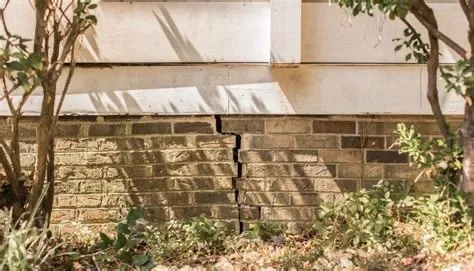(How to Handle Structural Issues, and Why It’s About More Than Just the House)
In my last post, I talked about how my journey from teaching to real estate hasn’t really changed the way I work with people. I still show up with care, I still listen, and I still take things seriously when it matters. This week, I want to shift into something more practical, but just as important: what to do when a house has foundation issues. It’s a common part of real estate, but the way we handle it says a lot about how we guide our clients, and even how we approach life when something underneath needs attention.
Sometimes in a transaction, everything looks good on the surface, until the inspection report comes in, and suddenly, we’re dealing with foundation issues.
This is when it’s important to slow down, breathe, and take the right steps.
Not emotional ones. Not reactive ones. Just solid steps, in the right order.
The first thing I always tell clients is this:
Don’t call a foundation company first.
Call a structural engineer.
Foundation companies are in the business of repairing foundations, which means, understandably, they may lean toward recommending work. A structural engineer, on the other hand, is a neutral third party. They don’t repair anything, and they don’t benefit from recommending repairs. Their job is to assess, and that’s exactly who you want at this stage.
If the engineer confirms there’s a foundation problem, then yes, you bring in a reputable foundation company, and that doesn’t just mean “good reviews.” You want a company that has been in business for several years.
Why? Because when they repair the foundation, they issue a lifetime transferable warranty. But if the company goes out of business, that warranty means nothing. Stability matters, not just in the foundation, but in the company doing the work.
Once the foundation has been repaired, the next steps are just as important:
- The structural engineer returns to inspect the completed work and to provide the final engineering report
- They confirm whether the correct piers were installed or adjusted — especially important if the home had a prior foundation repair and earlier engineering reports are being reviewed
- A hydrostatic test is done to make sure that during the foundation repair process, no underground plumbing lines were damaged or compromised
If you’re representing a buyer and the house has already had foundation repairs in the past, you still need to do due diligence:
- Ask for the initial and final structural engineering reports
- Review which piers were supposed to be fixed
- Confirm that the work matches what was recommended
- Check the warranty details
- Make sure the company has been around long enough to stand behind it
- So what does this have to do with life?
It’s simple, really.
Foundations matter.
Whether it’s a home, a relationship, a business, or even your own mindset, what’s underneath has to be solid, or everything built on top of it will eventually shift.
And when something is off?
You don’t rush to cover it up. You don’t just go with the first person who says they can fix it. You slow down. You investigate. You bring in people who are honest and steady. And then you do the work, the real work, so you can move forward with confidence.
That’s true in real estate.
And it’s true in life.
Thanks for reading, and as always, You Gotta Have Faith



